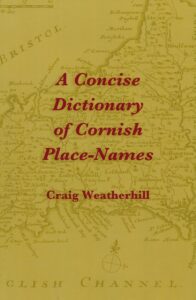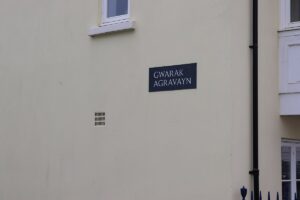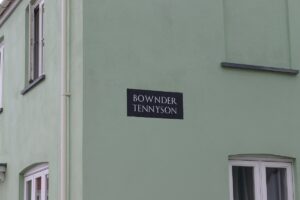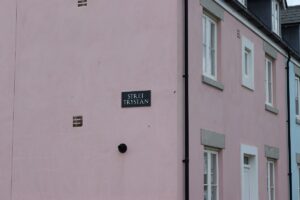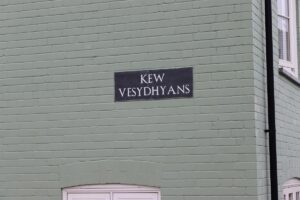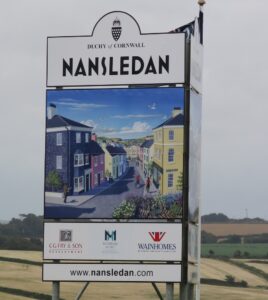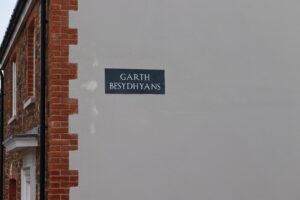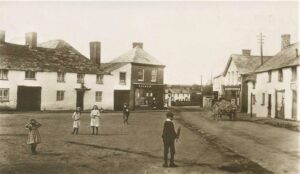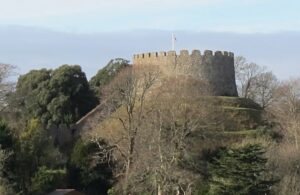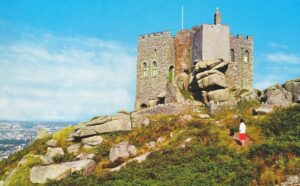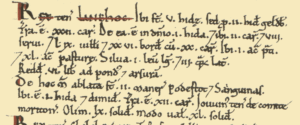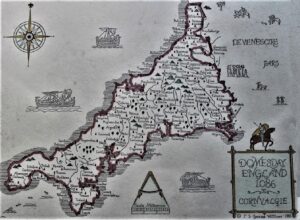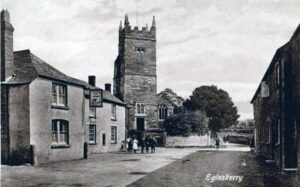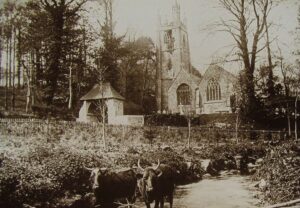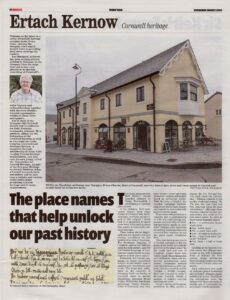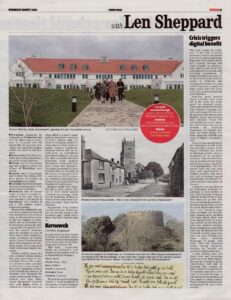Cornwall's place names help unlock our past history
This week prompted by Bert Biscoe’s recent heartfelt obituary to Craig Weatherhill I am looking at Cornish place names. In his obituary, Bert mentioned Craigs book ‘Place Names of Cornwall and Scilly’. Although, certainly not an expert in this subject I think that it is important to share some basic information about this aspect of Cornwall’s cultural heritage.
Place names are an important part of a nation’s cultural history, considered the last bastion of an extinct language. The Brythonic language of Cumbric spoken in Cumbria until the 12th century and the lost Pictish language of Scotland are remembered in many in their place names. Kernewek, the Cornish language, no longer considered extinct, is now widely used in naming new settlements and roads. The large new settlement on the outskirts of Newquay built on Duchy of Cornwall land is named Nansledan, meaning Broad Valley. Within the Nansledan settlement Prince Charles, Duke of Cornwall was very keen to have street and roads named in Cornish and largely based on Arthurian myths. With the help of MAGA, the Cornish Language Partnership, every street, lane, square and quarter in Nansledan will have a Cornish name.
Place name interpretation is complex and is used relating to both lost and existing languages and how they evolved. Interpretation needs to consider changes over centuries in spelling, understanding and research into whether or not the place name originated first. This may have given rise to a Cornish surname or did the name of an owner or resident give rise to the place name. In the north east and east of Cornwall where there was earlier Anglo-Saxon incursion and settlement there are numerous non-Cornish place names. Languages develop, over the centuries as with Cornish which evolved from Old Cornish to Middle Cornish, then Late Cornish to today’s Revived Cornish where a number of slightly varying spellings are used.
Kilkhampton [above] is a village where the name is partially derived from the Cornish Kelgh / Kylgh [circle or ring] with the addition of the Saxon tun [fence or land within a fence - town] added to it. Located where it is near the Cornwall - Devon border it would have had greater Saxon influence from an earlier time.
Carew’s Survey of Cornwall published in 1602 quotes a rhyme “By Tre, Pol and Pen. You shall know the Cornishmen”. William Camden in his earlier work had written “By Tre, Ros, Pol, Lan, Caer and Pen. You may know the most Cornishmen”. Although these rhymes relate to Cornish surnames they also relate to Cornish place names. So, what do these name elements mean?
- Tre– a settlement, homestead, farm
- Ros– heath, moor
- Pol– a pond, lake, well
- Lan– a religious enclosure
- Car– either from karn "tor" or ker "hill-fort"
- Pen, Pedn– a hill or headland
Looking at 331 historic Cornish towns and villages mentioned in the 1086 Domesday Book of William the Conqueror many settlements have Cornish names starting with these Cornish name elements. Each settlement was made up of three types of household and included villagers, smallholders and slaves. The following settlements were the largest with these six name elements out of Cornwall’s approximate 5,600 households.
- Trematon appearing in Domesday as Tremetone and was the third largest settlement in Cornwall with 100 households. It was near this village that one of the earliest castles was built by the Normans.
- Roseworthy had 36 households and is now a small hamlet not far from Camborne.
- Polsue had 30 households and was a manor where the village of Tresillian now stands.
- Lanow had 31 households and is where the village of St Kew, known in Cornish as Lanndogho now stands.
- Caradon had 90 households and was situated as part of the larger manor of Rillaton.
- Penheale had 50 households, so quite a sizeable settlement at the time. This is now situated in the parish of Egloskerry and consists of just a 17th century manor house and gardens.
These early settlements are now much reduced or have all but vanished from the modern map. As the population grew so did the number of settlements and as Kernewek was the language spoken by ordinary people throughout Cornwall for several centuries after the conquest so most of these were in the Cornish language. Gradually as English spread many Cornish people spoke both languages so sometimes names were made up of both Cornish and English elements.
Readers will be aware of large number of place names that start with Saint or Cornish Sen. This is often added to a person’s name, assumed to have been a saint living in that area. Examples of these are St Austell [Sen Ostell] or St Mawgan [Sen Mowgan] the names changing and being anglicised over time. Many places throughout Cornwall start with Eglos which is church in Cornish and was often added to a saint’s name such as, Egloskerry meaning St Keri’s church. Lan another Cornish place element is often added to other words or names. Lanivet [Lanneves], meaning church site by sacred grove, or Lanhydrock [Lanhidrok] Hidroc’s church site. Tre is possibly the most numerous name element throughout Cornwall for both place names and surnames. Tre being homestead or farm followed often by the name of the person owning that farm or description of it. For example, Trematon deriving from stone farm according to Craig Weatherhill’s dictionary.
Readers might give some thought to place names they see as they travel around Cornwall and perhaps check out the meanings of them as well as some traditional Cornish surnames. Some can be amusing.
